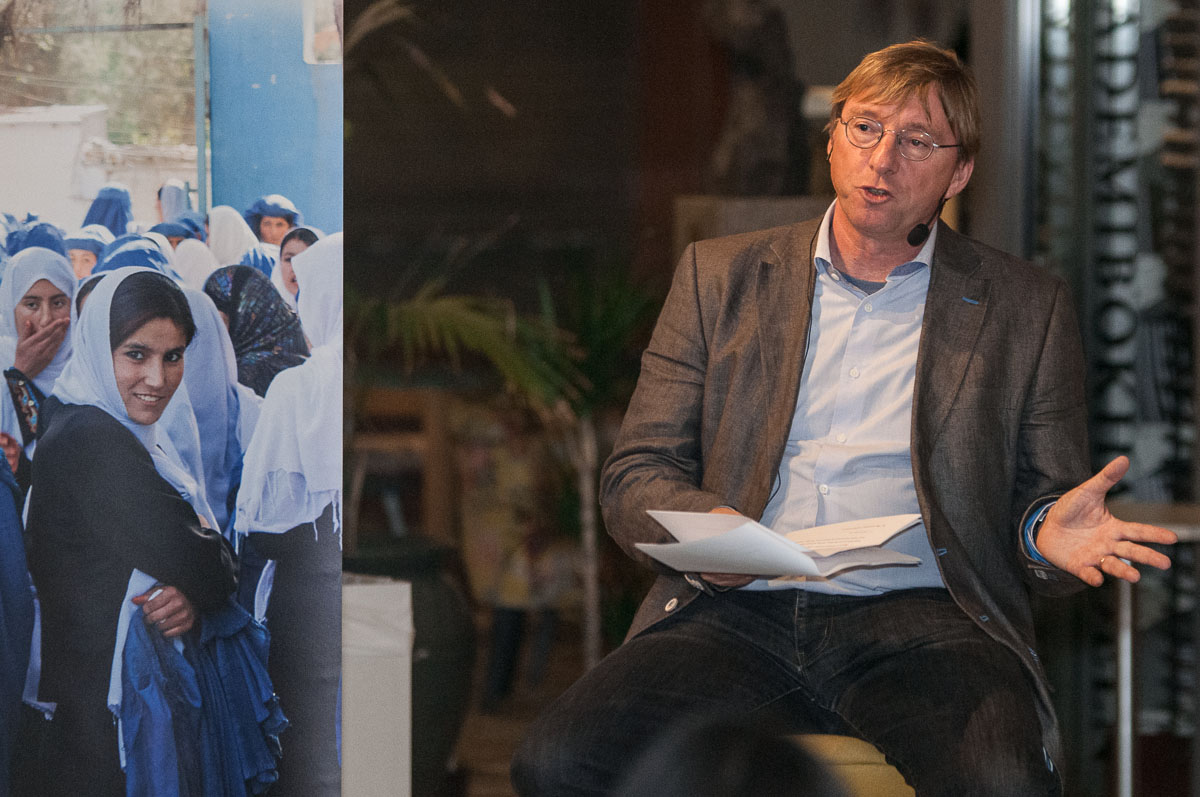Difficulties in the land of the Afghans are never ending. Lund University could attempt to settle one such difficulty, hereby playing a crucial role, writes reporter Saahil Waslekar in this analysis.
“There are a lot of children in Afghanistan, but little childhood”
- The Kite Runner, Khaled Hosseini
The modern day common man of Afghanistan needs his rights. He has somewhat experienced the state of nature from 1996 to 2001. In warmer times, he has been conferred social contract paralleled with questionable social order. Most recently, thanks to him, there is now a new president who proposes to focus on every youth, poor and woman. If the youth force is one of the answers to economic success, then the Afghan youth must most naturally demand employment. Although, with unsatisfactory education, the youth cannot be employed and Afghanistan cannot be free. With respect to higher education, Lund University can fill this void, hereby playing a crucial role in Afghanistan’s future. The University could take note of the times the parents of an Afghan youth has seen, faced and thus sent their offspring to a foreign land for greater good.
The 80s was probably the most uncertain decade Afghanistan experienced. During a public talk in December, 2013, Amrullah Saleh, former director of the National Directorate of Security, Afghanistan, recollects the simplicity in the way of living during such a turbulent time. In the 80s the transaction of Coca Cola in bottles would only take place if the buyer deposited money as guarantee to return the bottle. During this time, only one Bollywood movie would play in a week, on Thursday evenings, and one hour a week was dedicated to a radio show called Selective Songs, playing song requests from listeners. Alongside these grains of happiness, the people suffered due to scarcity of food and electricity. 88% of adults lacked formal schooling and only 5% of children received formal education. The Soviet war had displaced Afghans. This war disintegrated Afghanistan’s fabric resulting in a four year civil war beginning in 1992.
As of today, civil unrest has still found reason into the Afghan society. On 15th October, 2014, Thomas Ruttig, co-founder of Afghanistan Analysts Network spoke about the continuing crisis in Afghanistan. It was a talk organised by the Association of Foreign Affairs, Lund University. He categorised the current series of crisis under electoral, economic and educational. Ruttig explains, “there are 12 million kids (students) in schools and almost half or one third of them girls. But 80% of girls drop out before class 6 or class 4. 50% of schools still don’t have a roof on top. Such schools have school books which are dangerous sometimes. They have old (probably Mathematics) books from Mujahedin times: a Mujahedin group meets a group of Soviet soldiers, there are 40 of them, they kill 12, how many are left? This continues creating a culture of war”.
“It is important to link education with higher education. There are 34 provinces and every province wants its university but when you go there you don’t want a degree from most of them. You have people flooding the entrance exams for universities and there is a lot of corruption and cheating. Then, the people who make it into the system and do the degree, they come out and have no jobs”. He explained the plight of the Afghan education system, among several other realities, which fails to secure a future for the youth of the country.
Understandably, complex problems demand complex solutions, seeking answers within and outside of the Afghan mandate. The Afghanistan National Development Strategy documents a demand-supply phenomenon where lack of higher education infrastructure is hampering growth of students. Afghanistan is in urgent need for foreign cooperation to improve its quality of education. Lund University has answers for the Afghan youth who decides to study in the areas Afghanistan considers crucial for its growth. These include, agriculture, animal ecology, business, construction management, gender, information and communication technology, medicine and also the provision of laboratories and research centers.
At a macro scale, Sweden can provide expertise in hydroelectricity development projects, an energy source familiar to both countries. In December, 2013, while in conversation with Sayed Mujtaba Ahmadi, Economic Counsellor of Afghanistan to India, I learnt that currently, Afghanistan has the capacity to produce a surplus of 17000 megawatts of hydroelectricity. Additionally, at grassroots level, the Swedish Committee for Afghanistan has been playing a very important role. If Afghanistan is willing to recognise gender equality up to the ranks of governance, this can bolster its position, especially during regional cooperation talks. Thus, the Swedish model of governance could benefit the current government of Afghanistan.
At the lecture on Afghanistan, an Afghan student of Lund University was also present. I caught up with Maroof Hewad a couple of days later and he exerts, ‘I need to do something in terms of helping the Afghan government, so I would definitely go back and invest my gained knowledge…Afghan students are seen very downgraded when it comes to education opportunities’. He wishes that the international community provide better chances to Afghan students so that the students can ‘gain needy knowledge’.
In a time through culture, crisis and change all national stakeholders associated with Afghanistan must clearly define their goals. These goals will provide an Afghan identity and prevent repetition of the ‘Afghan girl’ amnesia. It is upon the aspirations of the Afghan youth to drive forward.






